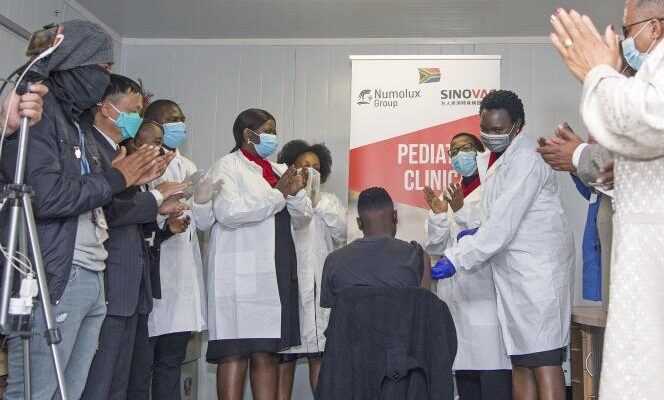But what happens to the new vaccines? Where are the two hundred projects announced in 2020 by pharmaceutical companies or research centers around the world? A few have been officially discontinued, such as those launched by the US giant Merck. Others have accumulated delays, after disappointing initial results, such as two of the favorites, the French Sanofi and the German CureVac. Until now, a veil of mystery surrounded the others… The Coalition for Innovations in Epidemic Preparedness (CEPI), the main international foundation supporting research in vaccinology, has partly lifted it. In a letter published on September 7 in the journal Nature, its scientific director, Melanie Saville, calls for the provision of batches of already existing vaccines in order to be able to carry out the comparative tests essential for their approval.
For the vaccinologist, the situation is extremely simple: “Scientists must develop the next generation of Covid-19 vaccines now, if the world is to meet the challenge of SARS-CoV-2 variants and reduce vaccine inequity by increasing the global supply. This can only be done if comparator Covid-19 vaccines – those that have already been approved – are available to support clinical trials. However, it is almost impossible to obtain these comparator vaccines; governments, developers and manufacturers must find a solution to unlock the supply. “
In other words, laboratories now face the puzzle of tests. The price for the success of the first vaccines. To carry out their clinical trials, a year ago, Pfizer, Moderna, AstraZenaca or Johnson & Johnson conducted the famous phase 3 placebo tests, carried out on tens of thousands of volunteers. The principle is known: half of the sample receives the candidate vaccine, the other half an inert product. Everything is done blind. Then we compare the progression of the disease in the two groups. It is this “standard” which made it possible to assert that messenger RNA vaccines were effective at 95%. Gold, “These tests are becoming more and more difficult to perform as the number of people vaccinated increases”, says Melanie Saville.
Not to be treated “like guinea pigs”
The problem is not so much the lack of unvaccinated individuals – even in France, there are several million left – as a major ethical obstacle. “We cannot make a volunteer who has received the placebo run the risk of developing a serious form when there are vaccines to protect him”, summarizes Marie-Paule Kieny, research director at the National Institute of Health and Medical Research (Inserm) and president of the Covid-19 vaccine committee. As long as there were no approved vaccines available locally, this was not a problem. But today, it is no longer tenable. No ethics committee can accept that. “ At the Cochin-Pasteur vaccinology center, the leading testing platform in France, its manager Odile Launay has refused, since the spring, any study against placebo. “Ethically, it’s just impossible, she sweeps. Especially since what interests us is precisely to test these products on people most at risk. “
You have 62.32% of this article to read. The rest is for subscribers only.
